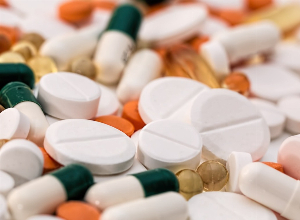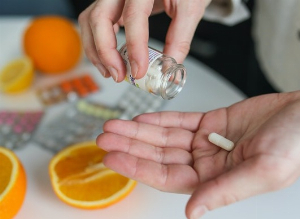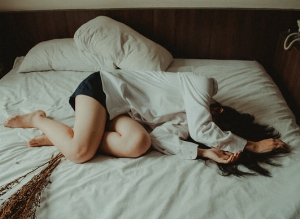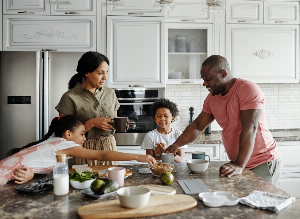Coronavirus and Barrier Gestures: What precautions should be taken?
Published 26 Mar 2020 • Updated 31 Mar 2020 • By Candice Salomé
On 23 March 2020, the United Kingdom moved into a shielding and protecting stage of the coronavirus pandemic, with the number of infected patients rising each day. In the absence of treatment, it is essential to respect certain measures to avoid transmission of the virus.
How can you avoid falling ill? How should you avoid transmission in case of infection? Are you well informed about the various precautions you should be taking in your daily life?
Let's take a look at the barrier gestures we should all be adopting.
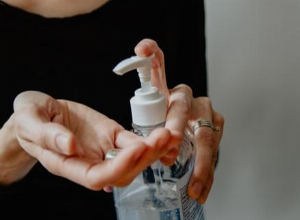
What are the barrier gestures to adopt to protect oneself from the coronavirus?
The NHS has identified several recommendations that must be followed closely:
The measures are as followed:
- Wash your hands with soap and water often – do this for at least 20 seconds
- Use hand sanitiser gel if soap and water are not available
- Wash your hands as soon as you get back home
- Cover your mouth and nose with a tissue or your sleeve (not your hands) when you cough or sneeze
- Put used tissues in the bin immediately and wash your hands afterwards
- Avoid touching your eyes, nose or mouth if your hands are not clean
- Respect a social distance of at least two metres from others, do not shake hands
- Respect the stay-at-home guidelines, only go out for one of the four authorised reasons, listed here.
Washing your hands: sure, but how?
Numerous health authorities recommend washing your hands every hour (even when staying at home) and compulsorily after going out or having been in contact with a sick person.
To wash your hands properly, it is important to follow a few simple guidelines, such as:
- Wash your hands for at least 20 seconds,
- Rub the back and palms of your hands together,
- As well as your fingers and in between your fingers,
- Don't forget the wrists and nails.
This video from the World Health Organization (WHO) will give you a good idea of what effective handwashing looks like:
To make sure that you wash your hands for the proper amount of time, here's a little tip: need a timer? Hum the “Happy Birthday” song from beginning to end twice. :)
What are some tips for effectively cleaning your home?
Besides ensuring proper personal hygiene to prevent the spread of the virus, other measures must be taken at home to minimise the risks:
- Use your usual household products, such as detergents and bleach, when you clean your home
- Clean and disinfect objects and surfaces you touch often (like door handles, kettles and phones) using your regular cleaning products
- Put used tissues and disposable cleaning cloths in rubbish bags. Then put the bag into a second bag and tie it securely. Wait three days before putting in your outside bin.
- Dispose of other household waste as normal
- Wash your laundry in the washing machine in the usual way. Laundry that has come in contact with an ill person can be washed with other people's items. Do not shake dirty laundry, as this may spread the virus in the air.
- If you do not have a washing machine, wait for three days after your stay at home has ended before taking your laundry to a launderette.
And of course, after cleaning, it is important to wash your hands properly(as explained above).
Under what conditions is it recommended to wear a mask?
WHO has indicated that wearing masks is not necessary among the general population. Wearing a mask when they are not needed deprives doctors, carers, other medical staff, the sick and those who have been in proven contact with an infected person from obtaining them. In fact there is a shortage of masks across the globe.
So who are the masks reserved for? Which masks are recommended against the coronavirus?
A person suspected of having symptoms of a respiratory infection or who is known to be ill can wear a mask to protect others.
There are two sorts of masks:
- Level 1 surgical masks that filter 95% of bacteria and level 2 surgical masks that filter more than 98% of bacteria. In the case of the coronavirus pandemic, these masks are reserved for patients or people who are known to be in contact with a patient.
- Respirators - shell masks, FFP2 or FFP3 respirators - are safety masks with a very high level of filtration. They are reserved for health professionals throughout the health system (medical transport, firefighters, doctors, nurses, etc.) and are not intended for the general public.
For a mask to be effective, it must have been manufactured in accordance with the Personal Protective Equipment Regulations 2002 and must be marked with the CE mark, indicating that it has met minimum legal requirements for its design.
What if we make our own masks?
While the NHS has not commented on making one's own masks, the Center for Disease Control in the United States has indicated that medical professionals can resort to homemade masks in times of crisis.
This could even be an activity to fill the time whilst in self-isolation at home!
A number of patterns have been made available online, including one from the Grenoble University Hospital. Online patterns use various layers of materials, but if you are short of fabric, the CDC found in 2006 that cotton t-shirts were effective in making homemade masks.
Caution, the effectiveness of homemade masks has not been studied by the NHS and it is very important to secure the mask on the face (for airtightness) and to wash it daily at 30°C with detergent. According to the Grenoble University Hospital, it is "a complementary option for those who would like it and who are not in direct contact with patients". Indeed, only standard masks are suitable for patients (suspected, tested, etc.) and carers.
What precautions should you take when leaving your home?
If you have leave your home to do your shopping, there are certain steps you should take to reduce the risk of infection.
For example, take your own shopping bags or trolley. It is important not to use supermarket baskets, as they are not always disinfected after a customer has left.
Furthermore, to limit the risks, it is advisable to touch as few things as possible, bearing in mind that the virus enters through the mucous membranes (nose, mouth, eyes). It is therefore important to be careful not to touch your face while shopping.
Contrary to what one might think, gloves are not necessarily a good idea because according to WHO, they can still pick up the virus and spread contamination. The only effective barrier is hand washing.
Finally, be sure to observe social distancing measures. It is recommended that you keep at least 2 metres of distance from others.
As the virus can survive for several hours on cardboard or plastic packaging, the first thing to do when you get home is to remove all packaging and wash your hands between each step!
In case of symptoms, how should you monitor your condition?
In the case of COVID-19, recovery usually occurs within a few days with rest and, if necessary, with treatment for fever. However, it is important to monitor your condition.
It is recommended that you take your temperature twice a day. If you have a temperature, then take paracetamol to bring it down (but not more than 1 gramme) 3 times a day (3 grammes in total).
At this time, the NHS finds that there is no strong evidence that ibuprofen can worsen the coronavirus . However, until there is more information, it is advised to take paracetamol to treat any symptoms, unless otherwise indicated by your doctor. If you are taking a daily course of medication, do not stop taking it without consulting your doctor.
Also, call your loved ones as much as possible to reassure them and call your doctor if you have any doubt about the progression of your symptoms. If you feel you cannot cope with your symptoms at home or your condition gets worse, including difficulty breathing, use the 111 coronavirus service. Call 111 if you cannot get help online.
If you live alone, ask your family and friends to deliver your medications, groceries or meals. Make sure they leave them at your door to limit contact. If you need help getting deliveries of essential supplies like food, you can register yourself or for someone else to get coronavirus support.
How can you protect those around you from COVID-19?
To protect your loved ones from the virus, it is best to avoid contact (do not touch or kiss them), and to keep a distance of two metres even within your home.
If possible, make sure you stay in a separate room with the door closed. Do not share your bed and eat your meals away from members of your household.
As you would do outside the home, it is recommended that you wash your hands very often with soap or hand sanitising gel and use single-use tissues that you then put in a closed rubbish bin.
Finally, clean the bathroom and WC after every visit with bleach or disinfectants.
What about our pets in all this?
As dogs and cats often roll around on the ground, it is important to wash them well, especially under these circumstances. It is recommended to use a special shampoo for cats or dogs and dry them well afterwards. Under no circumstances should hand sanitiser gel or disinfectant be used, as these products could be very dangerous to pets. The Humane Society of the United States and its European partner organisation, Humane Society International have both published articles addressing COVID-19 and animals. They provide answers regarding: the spread of COVID-19, steps that should be taken to protect our pets, how to organise care for animals in case of hospitalisation, etc.
What do you think of all these measures? Are you able to apply them in your daily life?
Do you plan on making your own masks at home?
Feel free to share your thoughts down below!
Sources :
https://www.cdc.gov/coronavirus/2019-ncov/hcp/ppe-strategy/face-masks.html#crisis-capacity
https://freesewing.org/blog/facemask-frenzy/
https://wwwnc.cdc.gov/eid/article/12/6/05-1468_article
https://sante.lefigaro.fr/article/coronavirus-dans-quel-cas-faut-il-porter-un-masque/
https://www.iledefrance.ars.sante.fr/coronavirus-covid-19-eviter-la-propagation-du-virus
6 comments


 Facebook
Facebook Twitter
Twitter